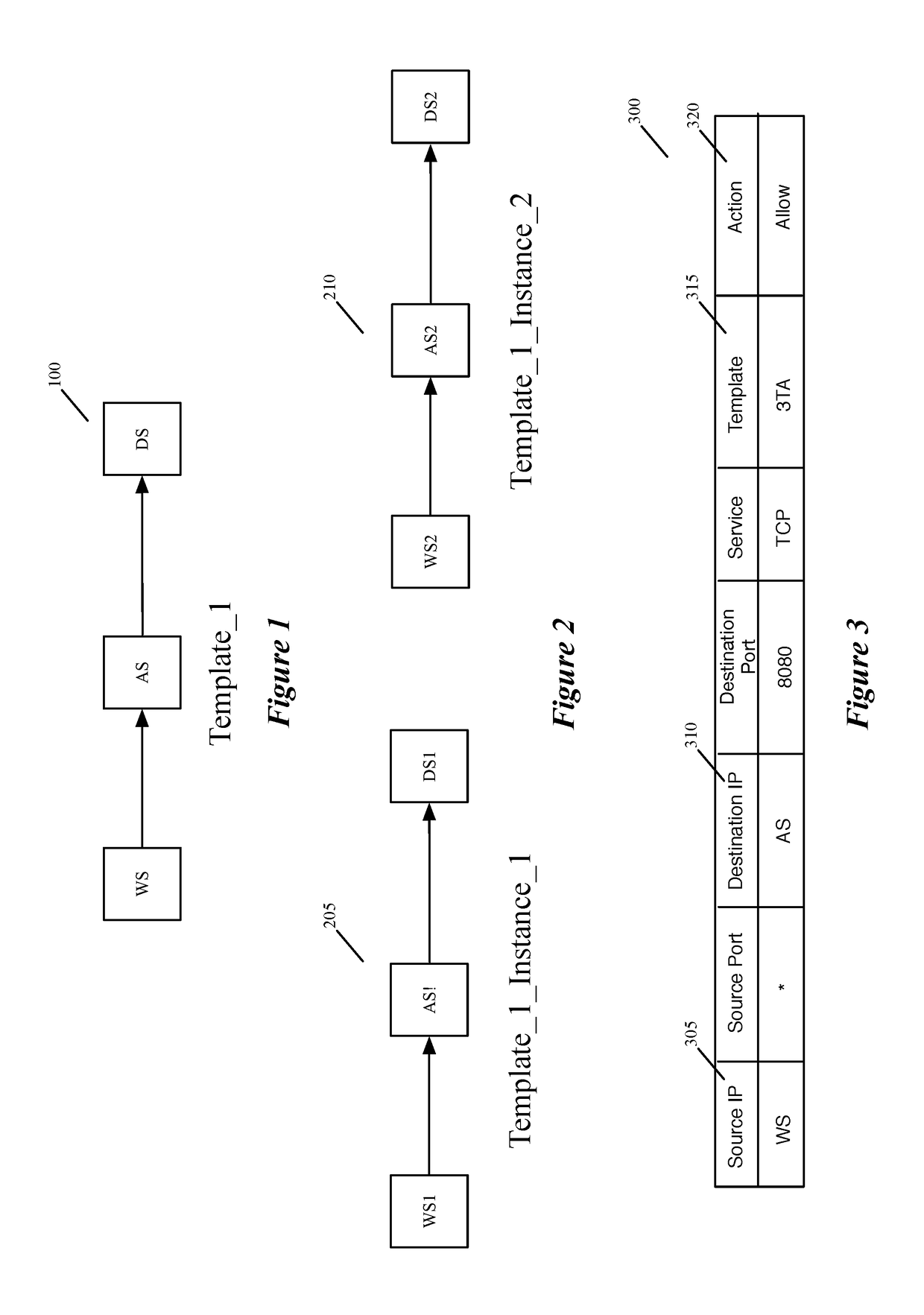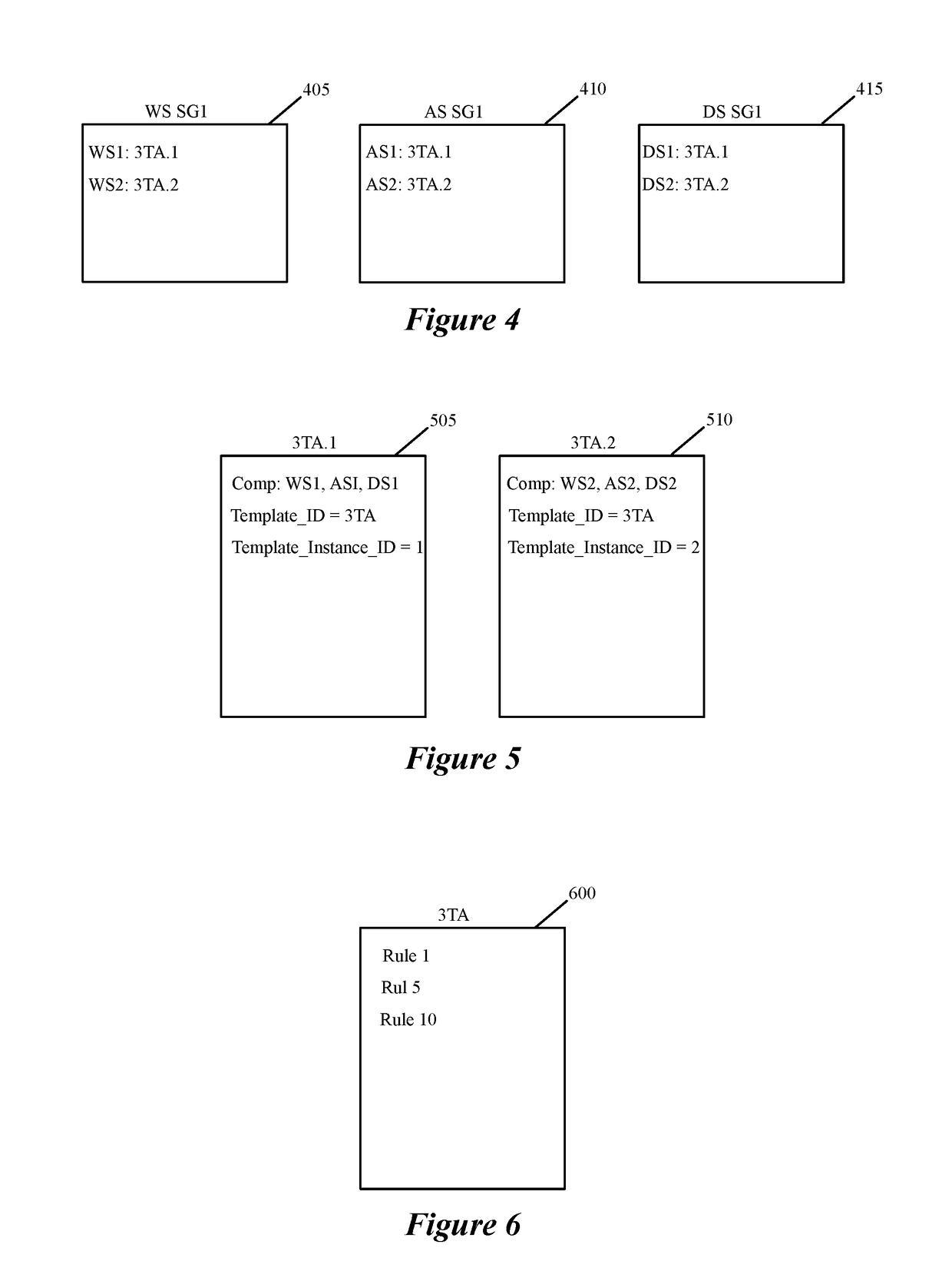Datapath processing of service rules with qualifiers defined in terms of dynamic groups
a technology of service rules and qualifiers, applied in the direction of transmission, electrical equipment, etc., can solve the problems of rule or dynamic group overload, policy model inherently inability to be made aware, scalability and performance problems of enterprise firewalls,
- Summary
- Abstract
- Description
- Claims
- Application Information
AI Technical Summary
Benefits of technology
Problems solved by technology
Method used
Image
Examples
Embodiment Construction
[0024]In the following detailed description of the invention, numerous details, examples, and embodiments of the invention are set forth and described. However, it will be clear and apparent to one skilled in the art that the invention is not limited to the embodiments set forth and that the invention may be practiced without some of the specific details and examples discussed.
[0025]Some embodiments of the invention introduce cloud template awareness in the service policy framework. Some embodiments provide one or more service rule processing engines that natively support (1) template-specific dynamic groups and template-specific rules, and (2) dynamic security tag concepts. In some embodiments, a template provides a definition of one or more layers of data compute nodes (DCNs) for deployment. Templates are typically referred to as blueprints, such as the blueprints that can be deployed through VMware vSphere.
[0026]In some embodiments, the template-specified DCNs are servers (e.g., ...
PUM
 Login to View More
Login to View More Abstract
Description
Claims
Application Information
 Login to View More
Login to View More - R&D
- Intellectual Property
- Life Sciences
- Materials
- Tech Scout
- Unparalleled Data Quality
- Higher Quality Content
- 60% Fewer Hallucinations
Browse by: Latest US Patents, China's latest patents, Technical Efficacy Thesaurus, Application Domain, Technology Topic, Popular Technical Reports.
© 2025 PatSnap. All rights reserved.Legal|Privacy policy|Modern Slavery Act Transparency Statement|Sitemap|About US| Contact US: help@patsnap.com



